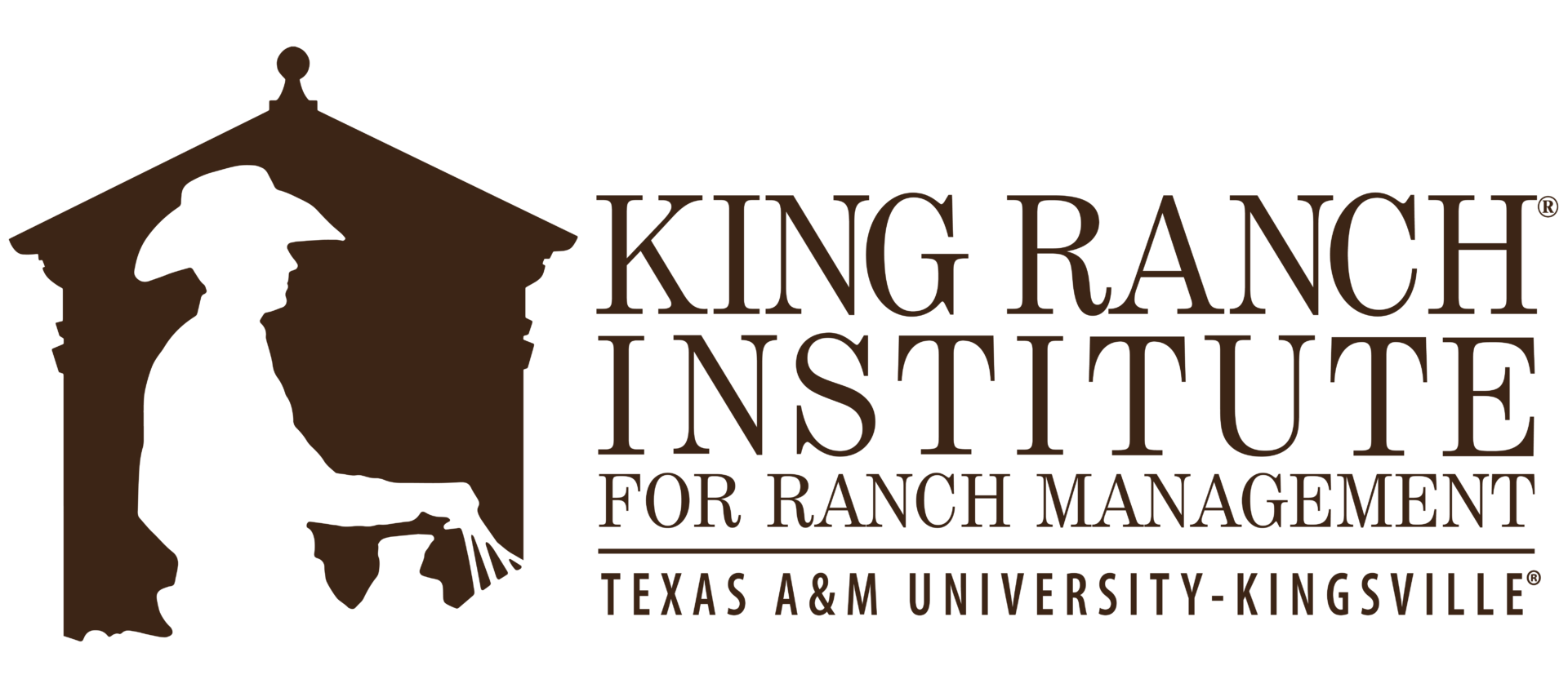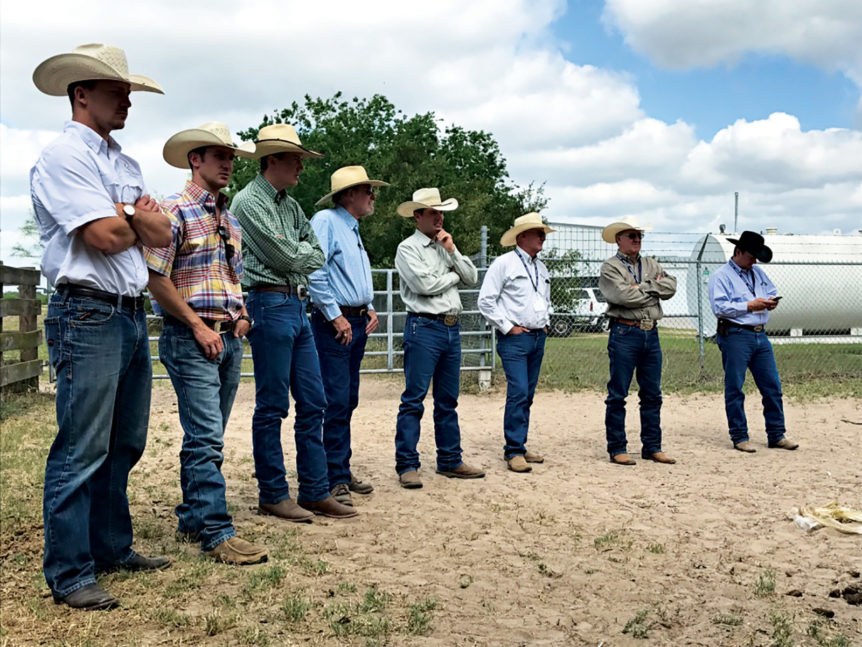Three Ranch Management Graduate students at KRIRM prepare for graduation, reflecting on their experiences and ready to serve the ranching industry
By Kindra Gordon Featured in the Winter 2019 Newsletter
It’s been said that graduation marks both an end and a beginning. It’s an exciting time to look back on growth and new skills gained – and to look forward to applying those skills to new opportunities.
For the three students preparing to graduate from the King Ranch® Institute for Ranch Management (KRIRM) master’s program in May 2019, reflecting on the “end” and anticipating the “beginning” is exactly what this trio is currently experiencing. KRIRM’s class of 2019 includes Chance Muehlstein from Kerrville, Texas; John Olsen from Ephraim, Utah; and Joe Glascock from Burns, Oregon.
Here, they reflect on their skills gained, the internship experiences that shaped them, and their outlook for future roles within the ranching industry.
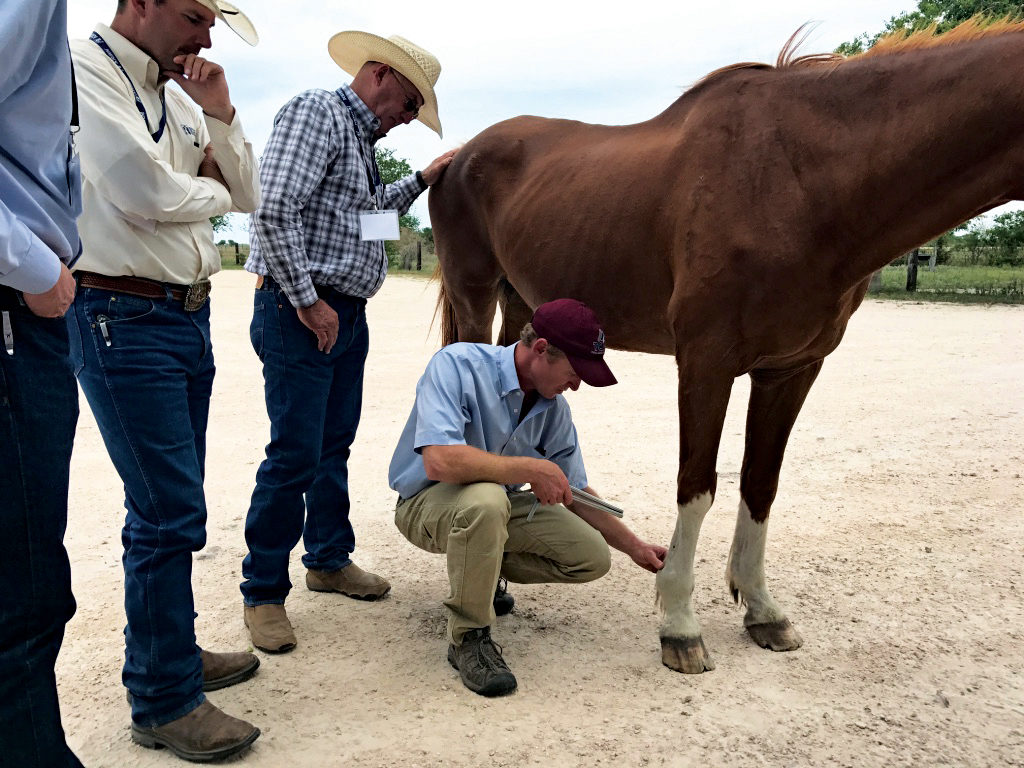
Long-Term Gains
From their experiences in the KRIRM program, this trio acknowledges their skills and abilities have been enhanced. Olsen counts improved self-awareness and leadership skills along with an increased understanding of the business side of ranching – particularly accounting and financial principals – among the highlights of his experience. He adds, “I now have the ability to look at problems and opportunities on ranches from a systems approach.”
Similarly, Muehlstein says, “I was able to greatly increase my knowledge of managerial accounting and financial principles. I now have the confidence and understanding to make tough decisions based on information gathered through financial statement analysis.”
Glascock notes that he benefited from the technical expertise and financial analysis focus, as well as the opportunities for professional development and networking.
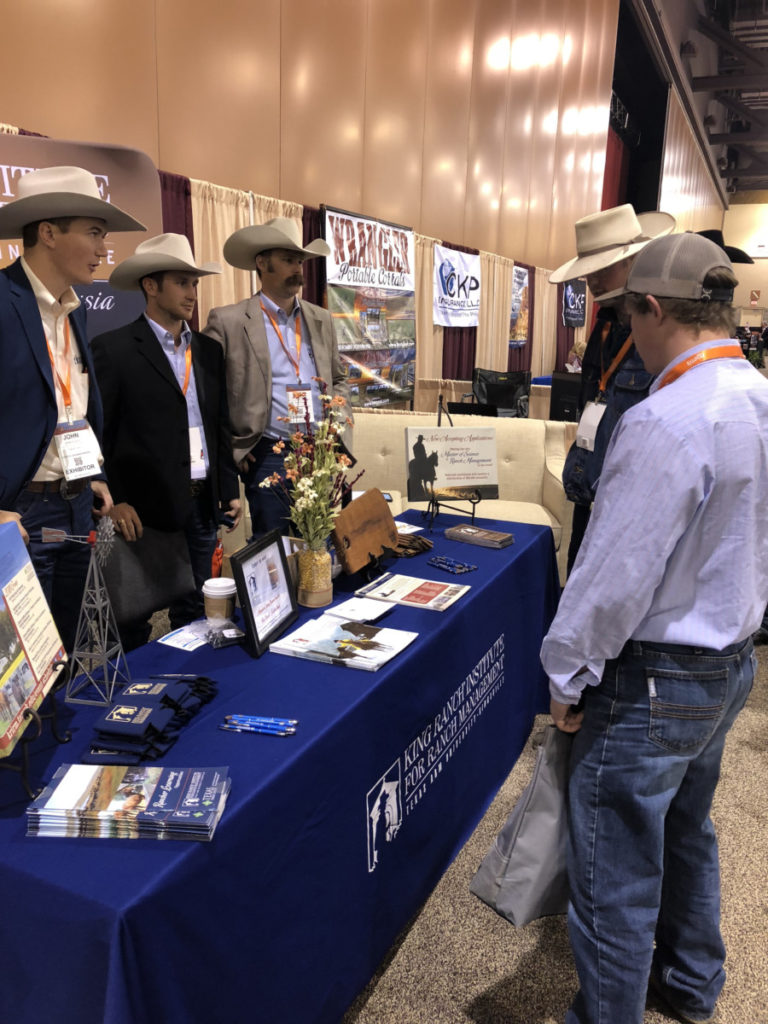
Olsen and Muehlstein concur that the networking opportunities KRIRM afforded them will be beneficial throughout their lives. Muehlstein says, “KRIRM has introduced us to a network of ranch managers and industry professionals willing to share their time and experiences to help benefit our career growth.”
Internship Insights
During their two year KRIRM commitment, each student fulfills an internship, which provides practical experience in a working ranch setting.
Olsen’s internship was with Deseret Cattle and Citrus, a 44,000-head cow-calf operation in central Florida. He conducted an analysis evaluating the integration of irrigation pivots for cattle production, and also spent time with different cattle crews on the ranch, which provided on-the-ground experience of ranching in Florida.
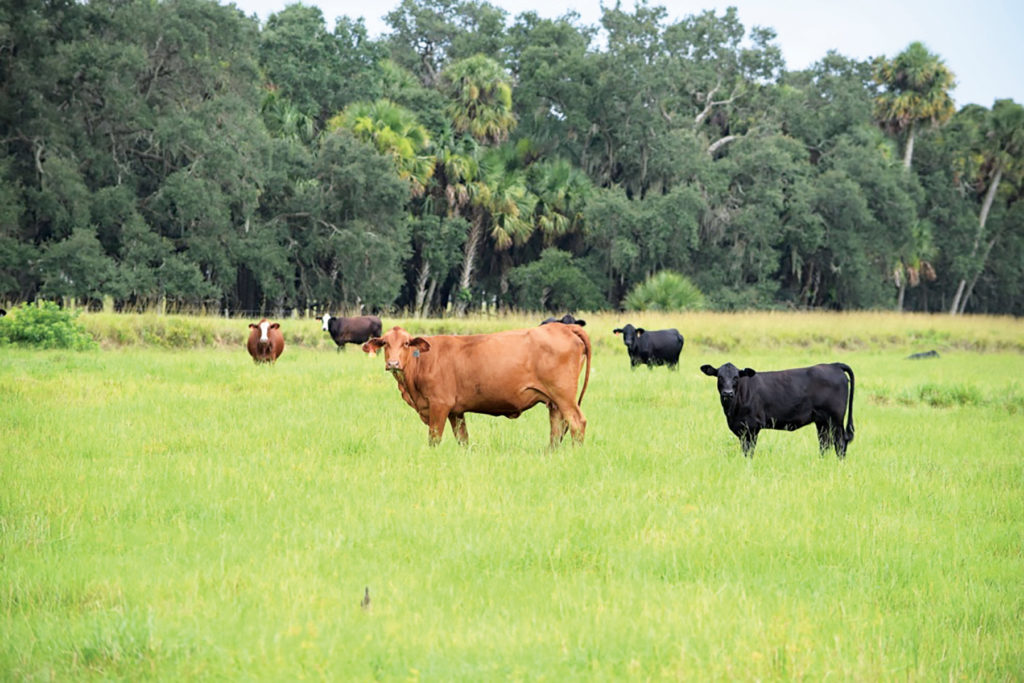
From the experience, Olsen says, “I came to realize even more that everywhere has its challenges and advantages – whether you receive 50 inches of rain and have to watch for alligators or if you receive 12 inches of rain and feed hay like producers in the north.”
Working with Deseret manager and KRIRM alumnus Clint Richardson, Olsen says he gained insight into the value of strategic planning and having a vision for an operation. Olsen adds, “While there I also realized how important it is to understand the goals of management and ownership. You need to make sure you are listening to what they want and not forcing what you may think is best.” Additionally, Olsen says he appreciated being able to understand and discuss ranch financial management, which is a skill he gained from his KRIRM courses.
Muehlstein’s internship took him to the Parker Ranch, a cow-calf and grass finishing operation on the Big Island of Hawaii. He worked with the Parker Ranch livestock and accounting teams to help develop several Key Performance Indicators. He explains, “The goal was to build a set of metrics applicable to each level of Parker Ranch, including the board of directors, management team, and cowboy crew. The experience was eye opening for me to see how a large cattle operation operates in the middle of the Pacific Ocean. There are many different challenges and opportunities associated with ranching in Hawaii compared with those we typically face on the Mainland.”
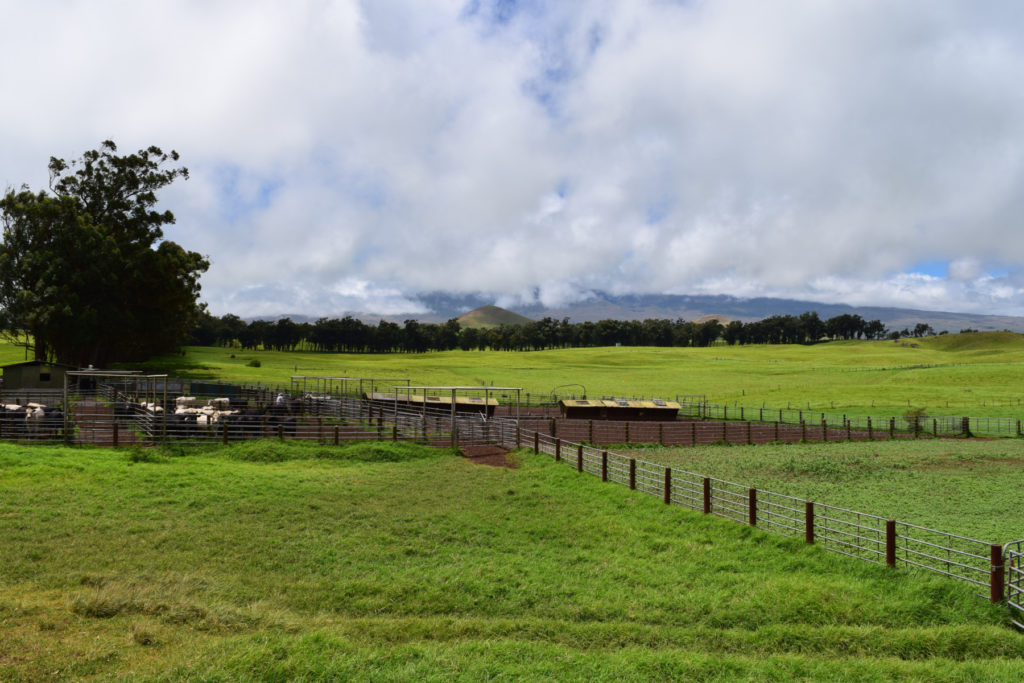
Muehlstein is appreciative of the opportunity he had to work with Parker Ranch livestock managers, Keoki Wood and Jason Van Tassell, a KRIRM alumnus. “Seeing how they interacted with members of their team, planned for success, and how they dealt with challenges as they arose were some of the key experiences I will be able to utilize in the future,” Muehlstein notes.
Glascock’s internship focused on analysis of water distribution across the King Ranch using GIS technology. Of the project, he explains, “King Ranch is interested in optimizing water distribution for wildlife and livestock grazing through improved data collection associated with stock water. Working with livestock unit managers, data was assembled for approximately 1,500 troughs and dirt tanks to identify areas of the ranch that might be underutilized by all species because of the distance to water.”
Glascock’s analysis included developing profit and loss values on a per-acre basis amortized for infrastructure life span. He also calculated approximate water development values. He says, “This internship was an opportunity for me to experience how a large and highly successful ranch uses massive amounts of data to maintain a ranching heritage while keeping a keen eye on profitability.”
Next steps
Looking ahead, Glascock says, “I am looking forward to running a large, diversified ranch and where applicable, using what I have learned at KRIRM. Being progressive, while at the same time maintaining a traditional ranching culture, is important. Ranch profitability margins are ever tighter and combining efficiency, animal husbandry and good analytical problem solving skills are necessary to keep the operation running in the black.”
Muehlstein has similar intentions. He says, “I hope to be a part of progressive operation where I can continue to grow and learn. As the world population continues to grow and many people are farther removed from agriculture, the challenge continues to be connecting with our consumer. I hope to continue to be a proponent for beef production to those who are unfamiliar with where their food comes from.”
Olsen adds, “My career aspirations are to go to a ranch where I can utilize the skills I have gained to make a difference on an operation and help them to be successful. I also hope to go to an operation where I am around people who will make me better and continue my learning and development.” Olsen says an important component to his future, will also be involvement in a ranching operation where he can provide for his family and raise his kids in ranching.
Olsen concludes, “My goals for serving in the industry are to be involved at all levels from local to hopefully national. I often remind myself of a comment King Ranch general manager Dave Delaney said: ‘If you aren’t at the table, then you’re on the plate.’ I really hope to be a leader in the industry and have a voice for us.”
About the Master of Science in Ranch Management Program at KRIRM
At the King Ranch® Institute for Ranch Management, we offer the only Master of Science in Ranch Management degree in the world.
We teach experienced ranchers-through a multi-disciplinary, systems approach-to become progressive leaders and exceptional managers. The curriculum and instruction at KRIRM prepares graduate students to manage complex ranching operations, and to positively impact the lives of people on those ranches and in the communities the ranches support.
We are now accepting applications to the two-year program. Learn more details about the curriculum, admission requirements, and application process here.
